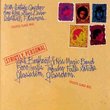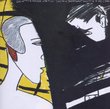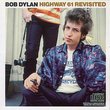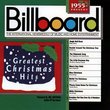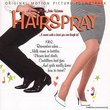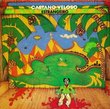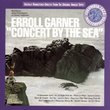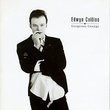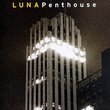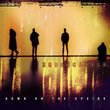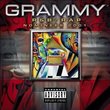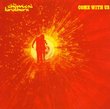| All Artists: Captain Beefheart Title: Mirror Man Sessions Members Wishing: 4 Total Copies: 0 Label: Buddha Release Date: 6/1/1999 Album Type: Original recording remastered Genres: Alternative Rock, Special Interest, Pop, Rock, Classic Rock Styles: Hardcore & Punk, Experimental Music, Blues Rock, Progressive, Progressive Rock, Psychedelic Rock Number of Discs: 1 SwapaCD Credits: 1 UPC: 744659960628 |
Search - Captain Beefheart :: Mirror Man Sessions
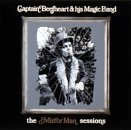 | Captain Beefheart Mirror Man Sessions Genres: Alternative Rock, Special Interest, Pop, Rock, Classic Rock
|
Larger Image |
CD DetailsSimilar CDs
Similarly Requested CDs
|
CD ReviewsA reconstruction of the "lost" Beefheart album... ewomack | MN USA | 08/21/2005 (4 out of 5 stars) "Captain Beefheart (who now only responds to Don Van Vliet) and (at the time) His Magic Band (later changed to "The Magic Band") were coming off of a very tepid success in 1967. Their first release, "Safe As Milk", didn't attract much attention, and Van Vliet very much wanted to expand his musical horizons. After Ry Cooder left the band, a new Magic Band was formed and they entered the studio to record the "Mirror Man Sessions". The material from these sessions subsequently languished in Buddha Record's vaults from 1967 to 1971. Most likely the fledgling label found the material uncompromisingly uncommercial (especially compared to the relatively more accessible "Safe As Milk"). So they sat on it until "Captain Beefheart" began to attract a following in the early 1970s. They then chose to release a single record with four long avant-garde blues magnum opuses (the first four tracks on this CD). For some reason they also claimed that the sessions dated from 1965 (this mistake even made it onto the early CD pressings of "Mirror Man"). Van Vliet's original vision for a follow-up to "Safe As Milk" comprised a double album entitled "It Comes To You In A Plain Brown Wrapper". He also wanted to turn the experimentation up a notch. One record was the "live" record (which ended up being recorded in the studio), and made up of the four long blues numbers. In these adventurous numbers Van Vliet plays off-key on a shenai (legend claims that Ornette Coleman gave this Indian reed instrument to him), sings through guitar pickups, experiments with cutting the power to the microphone off an on while singing, and howls highly poetic and ad-libbed lyrics. The second album, the "studio" album, would have likely resembled "Strictly Personal" (the actual follow-up to "Safe As Milk", released in 1968 on Blue Thumb Records). Songs recorded for Buddha that subsequently made it onto the next album include: "Trust Us", "Beatle Bones N' Smokin' Stones", "On Tomorrow", "Safe As Milk", and "Gimmee Dat Harp Boy" (truncated versions of "Mirror Man" and "Kandy Korn" also made it). In addition, the band recorded "Moody Liz", "Korn Ring Finger", "Big Black Baby Shoes", "Flower Pot", and "Dirty Blue Gene". Truly, they had enough material for a double album. But Buddha stopped the project in its tracks and refused to release the tapes of the sessions to the band. So the band found another label and the rest remains (overly-flanged and processed) history. This CD, and the reissue of "Safe As Milk", finally allow all of the material recorded for Buddha in 1967-1968 to see the light of day. Here are most of the unprocessed and unflanged "Strictly Personal" songs (Blue Thumb released the follow-up with a heavy layer of processing). Here they come alive. Hearing these versions will heighten the experience of listening to "Strictly Personal" (and allow fans a glimpse of just how much greater the album could've been). Plus, the remastering of the original songs from 1971's "Mirror Man" sound great. The band really moved forward with these sessions. Not only that, harbingers of "Trout Mask Replica" peek out here and there. The rhythms become more angular and unpredictable. The notes bend and disharmonize with more fury. And the Captain's voice begins to take on the tone and agressiveness that later became his trademark (in defiance of those at the time who wanted him to "just sing the blues" and make boatloads of money). These sessions highlight Van Vliet's integration of free jazz and rock and showcase the band's amazing developments and innovations that still influence popular music today. An absolute must for any Beefheart fan." Took me over a year...but then... Adam See | Guelph, Ont. | 06/07/2005 (5 out of 5 stars) "Firstly, to see that at the time of me writing this review that this remarkable album has only been reviewed 14 times is ridiculous. Utterlly ridiculous. I remember about a year ago buying this album on a whim through being a large Zappa fan - I was not impressed. However over the course of the year I began liking it more and more and now I think it's a masterpiece. This album is probably not the best place to start if you're new to Beefheart, I'd recommend Safe As Milk for that as it's more accessible. However if you're feeling adventurous and want to hear something completely different from literally ANYTHING you have heard before musically - check it out - it's fantastic. The opening track 'Taroplane' is a mouthful and at first seems repetative and simple. After repeated listenings it opens up for the listener, and then you'll see it as a wonderful delta blues, avant-garde, hard rock, folk, art rock diddy. I'm having a little trouble writting a review for this album, or any Beefheart album for that matter because it's so hard to describe the music. basically, my advice is that if you're reading this you already have an interest in Beefheart - so check his music out. In my opinion it's absolutely amazing and he remains one of my favorite musicians of all time." You're gonna need somebody on your bond. Adam See | 06/14/2004 (5 out of 5 stars) "This album is excellent music to drive to on a long trip. The bonus tracks are outstanding."
|

 Track Listings (9) - Disc #1
Track Listings (9) - Disc #1
